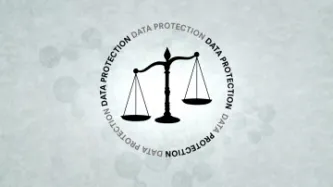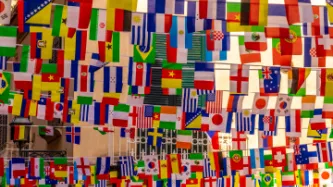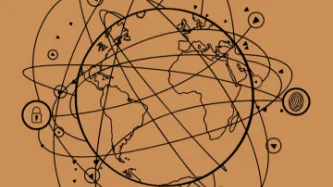Search
Content type: News & Analysis
We found the image here.
As the hype around the EU General Data Protection Regulation’s entry into force begins to die down, confidentiality of digital communications in Europe is facing a new challenge.
On one side, companies are lobbying to prevent the finalisation of the proposal for a new e-privacy regulation to protect privacy of communications and prevent unauthorised access to the data stored on devices, and the tracking of individual’s behaviour online.
On the other, a group…
Content type: Long Read
We found the image here.
Open a Russian Matryoshka doll and you will find a smaller doll inside. Ask a large data company such as Acxiom and Oracle where they get their data from, and the answer will be from smaller data companies.
Data companies – a catch all term for data brokers, advertisers, marketers, web trackers, and more – facilitate a hidden data ecosystem that collects, generates and supplies data to wide variety of beneficiaries. The beneficiaries of the ecosystem can include other…
Content type: Press release
WASHINGTON, D.C. – U.S. companies should adopt the same data protection rules that are poised to go into effect in the European Union on May 25, Public Citizen, the Center for Digital Democracy and Privacy International said today.
In a sign-on letter, 28 groups are calling on some of the world’s largest companies – including Facebook, Google and Amazon, as well as digital advertisers like Nestle, Walmart and JPMorgan Chase – to use Europe’s impending General Data Protection Regulation (GDPR…
Content type: Press release
Today, as the Data Protection Bill reaches its final stages, Privacy International has written to the leaders of the main UK political parties asking for public commitment to not use the exemption provided in the Bill to target voters - both online and offline - in all local and national forthcoming elections or by-elections.
Privacy International has long been concerned about the exploitation of peoples’ data and the opaque data ecosystem, and the impact of such practices on the democratic…
Content type: Long Read
If you operate an internet company in Russia, you aren’t necessarily surprised to one day open the door to someone, grasping in one hand a bundle of wires and in the other a letter from a government agency demanding access to your servers, with a black box wedged under one arm.
Internet companies in Russia are required by law to store the content of users’ communications for six months and the metadata of users’ communications for three years, essentially meaning that what a person does…
Content type: Long Read
Hasn't Facebook said it would give European data protection to all of their users?
Yes, but only in very vague language. In an initial reaction to the Cambridge Analytica scandal, Mark Zuckerberg declared that Facebook would apply the EU General Data Protection Regulation (GDPR) “in spirit” to their 2 billion users worldwide. When questioned by members of the US Congress, Zuckerberg declared that "[a]ll the same controls will be available around the world". Representative Green sought…
Content type: Report
Artificial Intelligence (AI) is part of our daily lives. This technology shapes how people access information, interact with devices, share personal information, and even understand foreign languages. It also transforms how individuals and groups can be tracked and identified, and dramatically alters what kinds of information can be gleaned about people from their data.
AI has the potential to revolutionise societies in positive ways. However, as with any scientific or technological…
Content type: News & Analysis
Following on from the publication of our ‘Digital Stop and Search’ report last month, into the use of intrusive technology that enables officers to download all of the data stored on our mobile phones, we are pleased that Scotland's Justice Sub-Committee on Policing have been scrutinising Police Scotland over their use of the technology.
During the hearing by Scotland's Justice Sub-Committee on Policing on 10th May John Finnie MSP stated he personally did not feel reassured, after grilling…
Content type: Advocacy
Today Privacy International, with TACD, published a document detailing 10 things that US companies need to know about the forthcoming General Data Protection Regulation (GDPR).
People’s data should be treated with the highest privacy protections no matter where they are based. Privacy is a fundamental human right and data protection is intrinsically linked to it. While GDPR is not perfect, it does provide enforceable rights and obligations. If US companies want to demonstrate true commitment…
Content type: Examples
"To the 53 people who’ve watched A Christmas Prince every day for the past 18 days: Who hurt you?" Netflix tweeted in December 2017. While the tweet did not contain any information that could have identified any of the 53 people, it still made many of those who saw it uncomfortable. A Christmas Prince was a new movie released by Netflix, and the statistic is apparently derived from the service's detailed collection of data on what its subscribers watch.
Subscribers are generally aware that the…
Content type: Examples
A federal class-action lawsuit filed in California in July 2017 alleges that in violation of the Children's Online Privacy Protection Act (COPPA) and without parental permission, the Walt Disney Company secretly collects personal information about some of its youngest customers and shares it illegally with advertisers. The lawsuit alleges that Disney allowed the software companies Upsight, Unity, and Kochava, which are also named in the suit, to embed trackers in Disney apps that can then…
Content type: Examples
A 2016 report, "The Perpetual Lineup", from the Center for Privacy and Technology at Georgetown University's law school based on records from dozens of US police departments found that African-Americans are more likely to have their images captured, analysed, and reviewed during computerised searches for crime suspects than members of other races. Because African-Americans are more likely to be arrested and have their mug shots taken, and because police criminal databases are rarely updated to…
Content type: Explainer
“Smart city” is a marketing term used to define the use of technology – and in particular data collection – to improve the functioning of cities. The idea behind smart cities is that the more local governments know about city inhabitants the better the services they deliver will be. However, the reality is that the term means different things to different actors from companies to governments.
The World Bank suggests two possible definitions of smart cities. The first one is “a technology-…
Content type: Examples
As part of its Smart Nation programme, in 2016 Singapore launched the most extensive collection of data on everyday living ever attempted in a city. The programme involved deploying myriad sensors and cameras across the city-state to comprehensively monitor people, places, and things, including all locally registered vehicles. The platform into which all this data will be fed, Virtual Singapore, will give the government the ability to watch the country's functioning in real time. The government…
Content type: Call to Action
Email your MP using any or all of the points below to start your message
You must personalise your message, for example to say why you feel passionate about this issue or what aspects particularly concern you.
Make sure you put: "Urgent: Data Protection Bill - Amendments for Report State on 9 May" in the subject title
Use the ‘Contact’ box above to send your email
Points to raise in your letter
RE: Data Protection Bill - Amendments for Report State on 9 May…
Content type: Examples
The news that connected TVs and set-top boxes were listening in on their owners' conversations led the state of California to pass legislation (AB1116) prohibiting companies from operating a voice recognition feature without prominently informing the user or installer during initial setup. In addition, the bill bars manufacturers and third parties from using recordings of spoken words "collected through the operation of a voice recognition feature" in order to improve their voice recognition or…
Content type: Examples
In 2016, the American Civil Liberties Union of Northern California published a report revealing that the social media monitoring service Geofeedia had suggested it could help police track protesters. The report's publication led Twitter and Facebook to restrict Geofeedia's access to their bulk data. ACLUNC argued that even though the data is public, using it for police surveillance is an invasion of privacy. Police are not legally required to get a warrant before searching public data; however…
Content type: Impact Case Study
PI and our global partners have been at the forefront of challenging communications data retention for over a decade.
What is the problem
Communications data, also known as metadata, tells a story about your digital activity and answers the who, when, what, and how of a specific communication. While communications data doesn't include the contents of a message, all of the other information about the message can be very revealing about people, their habits, thoughts, health and personal…
Content type: Impact Case Study
What is the problem
For over two decades we have been documenting an alarming use and spread of surveillance. It is no longer just the wars on terror or drugs or migration that is driving this trend. The management of health crises and distribution of welfare regularly are among others being used to justify this turn to increasingly invasive forms of surveillance. From country to country we see the same ideas and the same profiteers expanding their reach.
When we first released our report on…
Content type: Impact Case Study
What is the problem
In the 1990s privacy was often maligned as a ‘rich Westerner’s right’. We were told often that non-Westerners didn’t need privacy and had different cultural attitudes and would greet surveillance policies and technologies — often exported from the West.
Global civil society was composed mostly of a few individuals with no resources but great passion. The larger and more established NGOs, such as consumer and human rights organisations were less interested in ‘digital’ and ‘…
Content type: Impact Case Study
[Photo By Ludovic Courtès - Own work, CC BY-SA 3.0] Last update: 14 December 2022What is the problem and why it is importantUntil the early '10s, the right to privacy had been sidelined and largely unaddressed within the UN human rights monitoring mechanisms, despite being upheld as a fundamental human right in the Universal Declaration of Human Rights and the International Covenant on Civil and Political Rights (ICCPR).Beyond the ICCPR General Comment No.16: Article 17 (…
Content type: Impact Case Study
What happenedStrong and effective data protection law is a necessary safeguard against industry and governments' quest to exploit our data. A once-in-a-generation moment arose to reform the global standard on data protection law when the European Union decided to create a new legal regime. PI had to fight to ensure it wasn't a moment where governments and industry would collude to reduce protections.In January 2012, the European Commission published a proposal to comprehensively reform the…
Content type: News & Analysis
Image was found here.
As part of Privacy International’s mission, we aim to take the issues emerging from our research and that of our partners to new spaces of debate and to the attention of stakeholders at the national, regional and international level.
In April 2018, Privacy International was able to engage for the first time with the African Commission on Human and People's Rights (ACHPR) at its 62nd Ordinary Session, which took place in Nouakchott, Mauritania.
The right to privacy does…
Content type: Press release
Full report is available here
ARTICLE 19 and Privacy International’s report provides an overview of the impact of AI technologies on freedom of expression and privacy. It calls for further study and monitoring of how AI tools impact human rights.
Specifically, we call on states and companies to:
Ensure protection of international human rights standards. All AI tools must be subject to laws, regulations, and ethical codes which meet the threshold set by international standards.…
Content type: Advocacy
A new Privacy International report, based on an international collaborative investigation carried out by 40 NGOs in 42 countries, has found alarming weaknesses in the oversight arrangements that are supposed to govern the sharing of intelligence between state intelligence agencies. Privacy International urges governments to enact urgent reforms and improve public understanding about the scope of intelligence sharing and the safeguards and oversight currently in place.
Content type: Advocacy
A new Privacy International report based on an international collaborative investigation carried out by 40 NGOs in 42 countries has found alarming weaknesses in the oversight arrangements that are supposed to govern the sharing of intelligence between state intelligence agencies, including in the UK. Privacy International urges governments to enact urgent reforms and improve public understanding about the scope of intelligence sharing and the safeguards and oversight currently in place.
Content type: Long Read
A major new report published today by Privacy International has identified alarming weaknesses in the oversight arrangements that are supposed to govern the sharing of intelligence between state intelligence agencies.
'Secret Global Surveillance Networks: Intelligence Sharing Between Governments and the Need for Safeguards' is based on an international collaborative investigation carried out by 40 NGOs in 42 countries.
Previously undisclosed documents obtained by PI via litigation in the…
Content type: Long Read
This piece was originally published in Lawfare in April 2018
The United States is party to a number of international intelligence sharing arrangements—one of the most prominent being the so-called “Five Eyes” alliance. Born from spying arrangements forged during World War II, the Five Eyes alliance facilitates the sharing of signals intelligence among the U.S., the U.K., Australia, Canada and New Zealand. The Five Eyes countries agree to exchange by default all signals intelligence…
Content type: News & Analysis
El 10 de mayo de 2018, en el marco del 30º período de sesiones del Examen Periódico Universal (EPU) en el Consejo de Derechos Humanos de las Naciones Unidas, toca la revisión de Colombia, lo que es una oportunidad Colombia y otros Estados para declarar qué acciones han tomado para mejorar la situación de derechos humanos en sus propios países, para cumplir sus obligaciones internacionales en la materia.
Colombia se encuentra actualmente en un punto de inflexión, debido al proceso de transición…
























